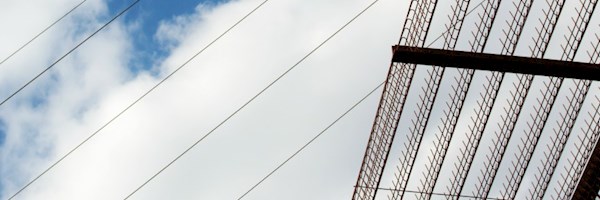Electric fencing is by nature potentially dangerous. Find out what happens if a fault occurs and who is liable if someone gets hurt.
Electric fencing is a popular security solution in South Africa which, along with alarm systems and CCTV cameras, is used as a deterrent to would-be burglars. However, by nature, it is potentially dangerous. But what happens if a fault occurs and who’s liable if someone gets hurt? Before you jet off on holiday this festive season it’s worth checking that all is in order.
This is according to DSC Attorneys partner Kirstie Haslam, who says that any homeowner who does not have a valid Certificate of Compliance, issued by a qualified electric fencing installer registered with the Department of Labour, can be held civilly and criminally liable for injuries caused by the fencing.
According to the Electrical Machinery Regulations of 2011, electric fencing that does not conform to the Electricity Security Installations Regulations outlined below is illegal.
Electricity security installations regulations
By law, electric fencing has to comply with the following regulations:
- It must be installed on a wall with a minimum height of 1.5 metres
- If angled brackets are used, the maximum outward angle is 45 degrees and they must be installed on the inside of the boundary wall and neighbours’ consent is required if you plan to angle brackets into their property
- The fencing must be installed and operated such that it won’t cause a hazard or entanglement to people or animals
- The maximum distance between posts is 3 metres
- A minimum of three earth spikes must be installed for every 30 metres
- Electrification of barbed or razor wire is prohibited
- Yellow warning signs are required at all gates and access points
- Electrified gates must enable a person to open and close them without receiving a shock
Haslam says that a property owner whose electric fencing doesn’t comply with the regulations may face a hefty fine or jail time, especially if the fencing seriously injures someone.
Claims for injury due to electric fencing
“If you or your child is injured by electric fencing that doesn't comply with the electrical installation regulations, you may have a personal injury claim against the property owner responsible for the fencing,” she explains.
She continues: “It is worthwhile seeking an attorney that specializes in personal injury claims should this happen. They can assess your claim, help prepare supporting evidence and represent you in legal proceedings, giving you the best chance of receiving the compensation you deserve.”
How electric fencing works
Electric fencing is made up of multiple strands of wire powered by an energiser or transformer. “When properly installed and maintained, the energiser creates intermittent electronic pulses of up to 10 000 volts,” she says. “Because the electricity flowing through the wires is turned on and off every second, the system is not lethal when touched.”
What happens when things go wrong?
When the transformer that converts low-voltage power to high-voltage power is faulty, or an animal or person gets entangled in loose wiring, there’s a risk of serious injury and even death. Haslam points out that children and people with heart problems or who have pacemakers are particularly vulnerable when subjected to continuous high-voltage electrical shocks.
